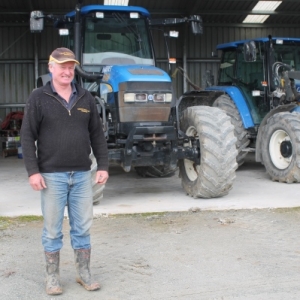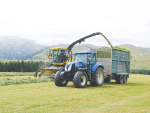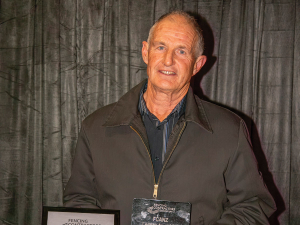RURAL CONTRACTORS New Zealand is welcoming news that Government's plans to encourage more New Zealanders into seasonal work and also its decision to increase the annual Recognised Seasonal Employer (RSE) cap to a total of 9000 workers.
RCNZ president, Steve Levet says this boost to seasonal workers is essential in delivering the horticulture industry's forecasted future growth, but suggests a similar scheme is also needed in the rural contracting sector.
"There is no doubt the horticulture sector is an important and valuable part of New Zealand's economy and the Government is right to make provisions for that sector," he says.
"However, we need similar provisions for the rural contracting sector as there is a gap between rural contractors' needs for trained, agricultural machinery operators and unemployed New Zealanders who can do this work."
Levet believes the rules around employing temporary, skilled people from overseas prepared to work for 6-8 months each year need to be simplified as do the regulations restricting people who have previously worked here in past seasons coming back to New Zealand to work.
"Contracting is a seasonal business and one that uses sophisticated machinery that requires technical skill to operate productively," he adds. "Part of this shortfall is met by bringing in skilled operators from overseas."
Levet says political parties of all persuasions need to understand that a dire shortage of suitable agricultural machinery operators means rural contractors rely on employing skilled people from overseas on a temporary basis each season and have done so for many years.
He adds that many of the applicants Work and Income NZ (WINZ) tries to fill these vacancies with; either do not have the right skill-set and/or attitude to be successful.
"We are talking about operating highly technical and very expensive pieces machinery. It is unrealistic, unsafe and impractical to expect unemployed people to walk off the street and successfully take up these positions.
"The seasonal nature of rural contracting means workers with the right skills are needed for only a few months each year. Understandably, this kind of short-term employment does not often suit locals who are looking for fulltime work."
Levet says RCNZ will continue to work closely with the Government, political parties and officials too both ensure that locals have the best opportunity for employment, as well as continuing to lobby for changes to the rules around engaging overseas seasonal workers for the benefit of the rural contracting sector.


















